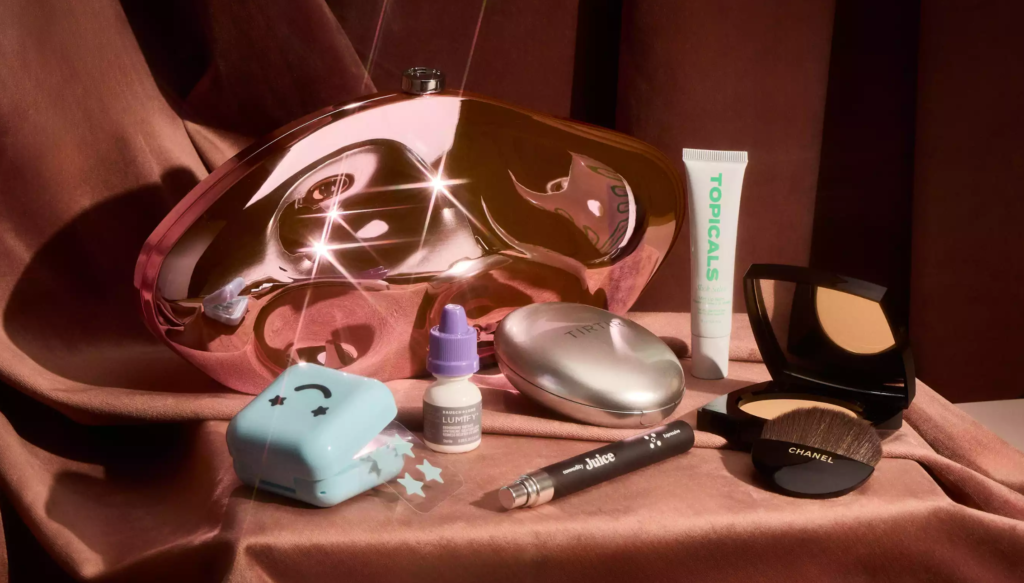Do you remember your last concert experience when the lights were turned on and off, and you felt both vulnerable and excited? We all wanted to be a part of the carnival when Kelsea Ballerini screamed during the Patterns Tour and Charli XCX lit up the stage. Your bag is the mini-equipment library for this ritual.
What do you look for when the lights go off?
Holly Rhue’s mini hairbrushes, Olivia Hancock’s travel-sized hand-sanitizer, and Ali Webb’s dramatic highlights, and sunglasses are not just a reflection on personal preferences but also a response the modern anxiety to “always be prepared”. Data shows that 76% prepare emergency items three days in advance. The choice of these items reveals the desire to “be seen” and our fear of losing control.
The Sociology of Gear Philosophy: From Highlighters to Painkillers
Your concert bag is more than just a collection of things. It’s a statement of your identity. Derek Deng’s TirTir Air Cushion Foundation, Adi Giesey’s claw clips, and Adi Giesey’s mini perfumes – these seemingly trivial things actually construct a “repairable” aesthetic – both a resistance against chaos and a quest for instant gratification.

Gear Philosophy – When Music Becomes an Identity Touchstone
In the age of social media, concerts are no longer just about the music. They have become a place to create “shareable memories”. According to data, 63% of Generation Z consider “the status at a concert” as part of their brand. Your bag is not just a survival tool but also a piece of identity equipment. Ali Webb’s sunglasses during Charli XCX’s performance were not just to protect her eyes, but also to declare, “Even amidst the chaos, I chose to be seen.”
Outfit isn’t about preparation; it’s all about attitude
Ask yourself the next time you’re getting dressed for a concert: What story does your bag tell? Is it Holly’s “function first”, or Olivia’s, “always new?” When the lights turn on and the lightsticks wave, you’ve already made your choice.




